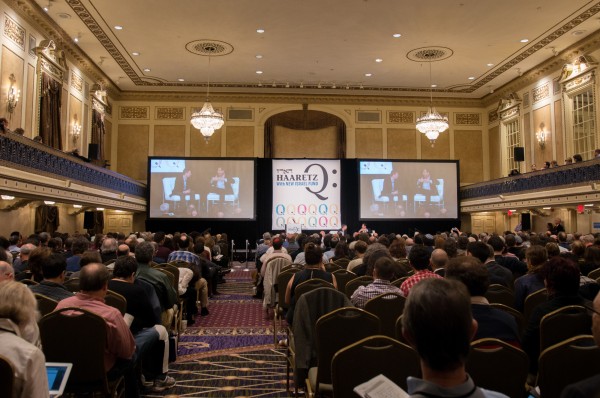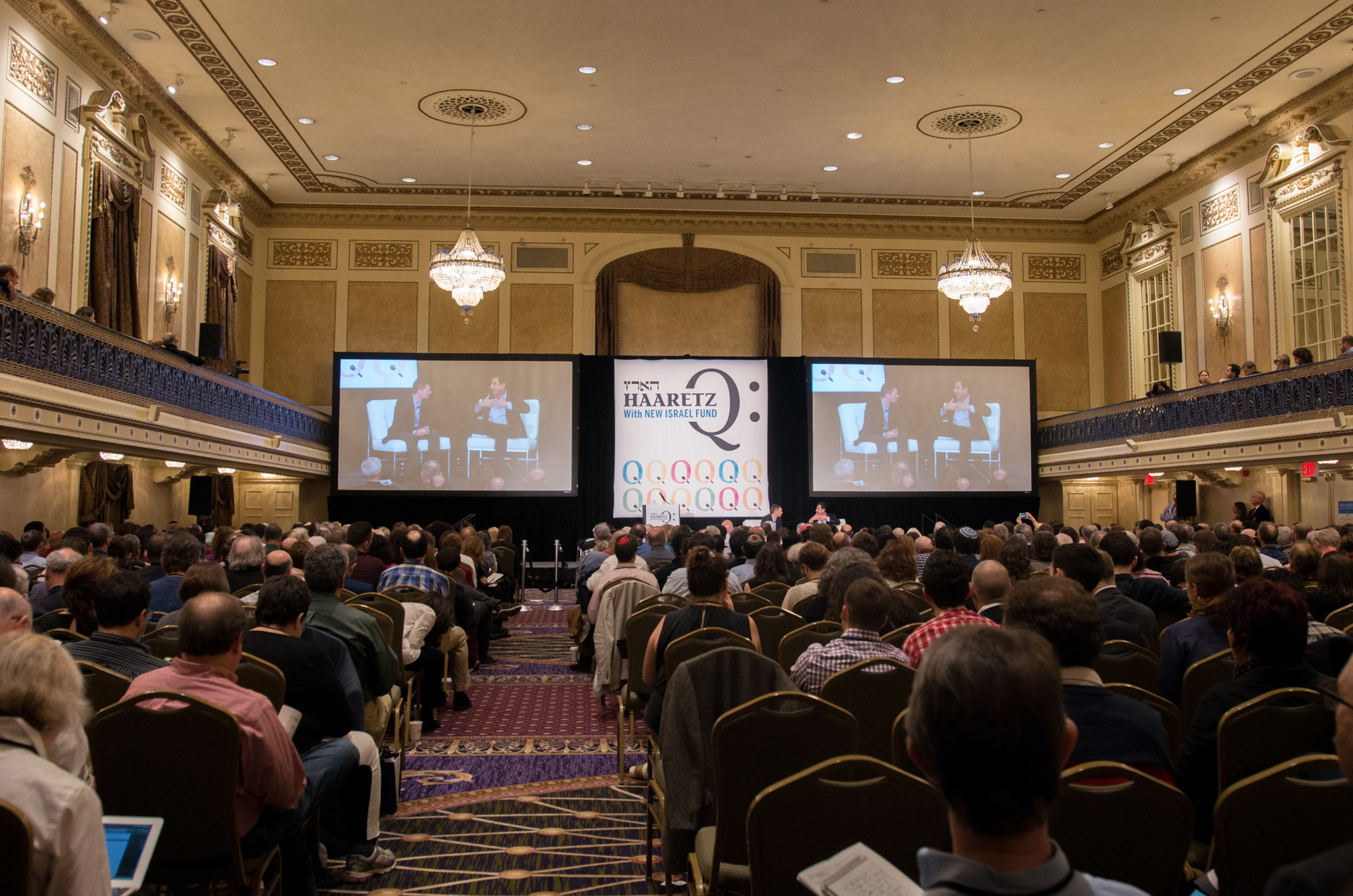
Perhaps nothing characterizes the divisions I see in American and world Jewry better than the list of opening and closing keynote speakers at HaaretzQ, a conference on Israel hosted by Haaretz and the New Israel Fund in New York Sunday.
The day kicked off with speeches from Israeli President Reuven Rivlin, MK Tzipi Livni of the Zionist Union, and PLO Secretary General Dr. Saeb Erekat. It ended with speeches from U.S. Ambassador to the UN Samantha Power and Joint List MK Ayman Odeh, and a conversation between Haaretz columnists Ari Shavit and Peter Beinart over the state of the left in Israel.
If that list sounds like it often skewed away from the conference’s professed progressive bent, it’s because it did. Rivlin praised Haaretz, all the while reiterating his disagreement with its politics; Livni spoke about her parents’ Irgun membership; Power gave a speech in which she devoted several minutes to her work defending Israel at the UN, something many attendees didn’t seem interested in.
There was ideological plurality evident in the list of panelists, but if you were just following along on Twitter, it clearly was not enough. The gist was: This is good, but it can be better. There was little representation from millennials. No representation of Jewish anti- or non-Zionists. Not enough women on the panels. And on the one all-female panel, a discussion on activism and intersectionality, panelist Suhad Babaa took a moment in her closing remarks to note: “I want to draw attention to the fact that there isn’t a Palestinian front-line activist on this panel.”
The great thing about HaaretzQ, I thought, was that there was room for these very open criticisms — and appreciation for them. The room broke into applause at Babaa’s observation.
Criticism came from other parts of the political spectrum, too; Abe Foxman, formerly of the ADL, noted to Foreign Policy that the conference was “like-minded talking to like-minded.”
He’s not wrong. Of course there should have been more representation from right-wing parties like Likud, but in order for leftists to address divisive issues, they have to come to some kind of consensus on what those issues are and how to solve them. It was clear from several of the panels and speeches at HaaretzQ that there is no consensus — but at least the problems were clearly stated (including that there’s no consensus).
But the biggest question of HaaretzQ then becomes: Was this conference what it promised to be?
Just putting a name to the problem, a fence around the absences, won’t fix the issues people see. Asking questions — how to get youth more involved in Jewish life, how to reach a two-state solution, whether the progressive movement still has a future in Israel — is not enough, and answering them at conferences in the United States is not enough, regardless of our foreign policy involvement in Israel. Conferences by necessity are not accessible to everyone. They cost money, and they take place in fixed geographical locations.
But HaaretzQ didn’t promise to have solid solutions. Its stated purpose was to enable community leaders to ask and address pressing questions about Israel, and to take the progressive voices of Haaretz to a country where they’re welcome. Its purpose was to get the community talking. So the Jewish community remains fractured; what else is new?
But it’s a hopeful move that such a conference can exist and sell out. It’s hopeful for the American Jewish community, certainly, and perhaps for Israel as well.
At lunch, I ran into Amna Farooqi, the president of the J Street U student board. We were talking about how unique the conference was when an older woman turned around and joined in, enthusiastically telling us how great it was to be at a conference that discussed issues of Israel with diverse and left-of-center voices.
Maybe it wasn’t perfect the first go-round. But at least to me, someone really just getting her feet wet in American Jewish life, it was a good place to start.
Chloe Sobel graduated from Queen’s University and is editor in chief of New Voices.
Below, we’ve compiled tweets from #HaaretzQ to give you an overview of how the speeches and panels went down. (We recommend clicking through to Storify; it’s long.)

